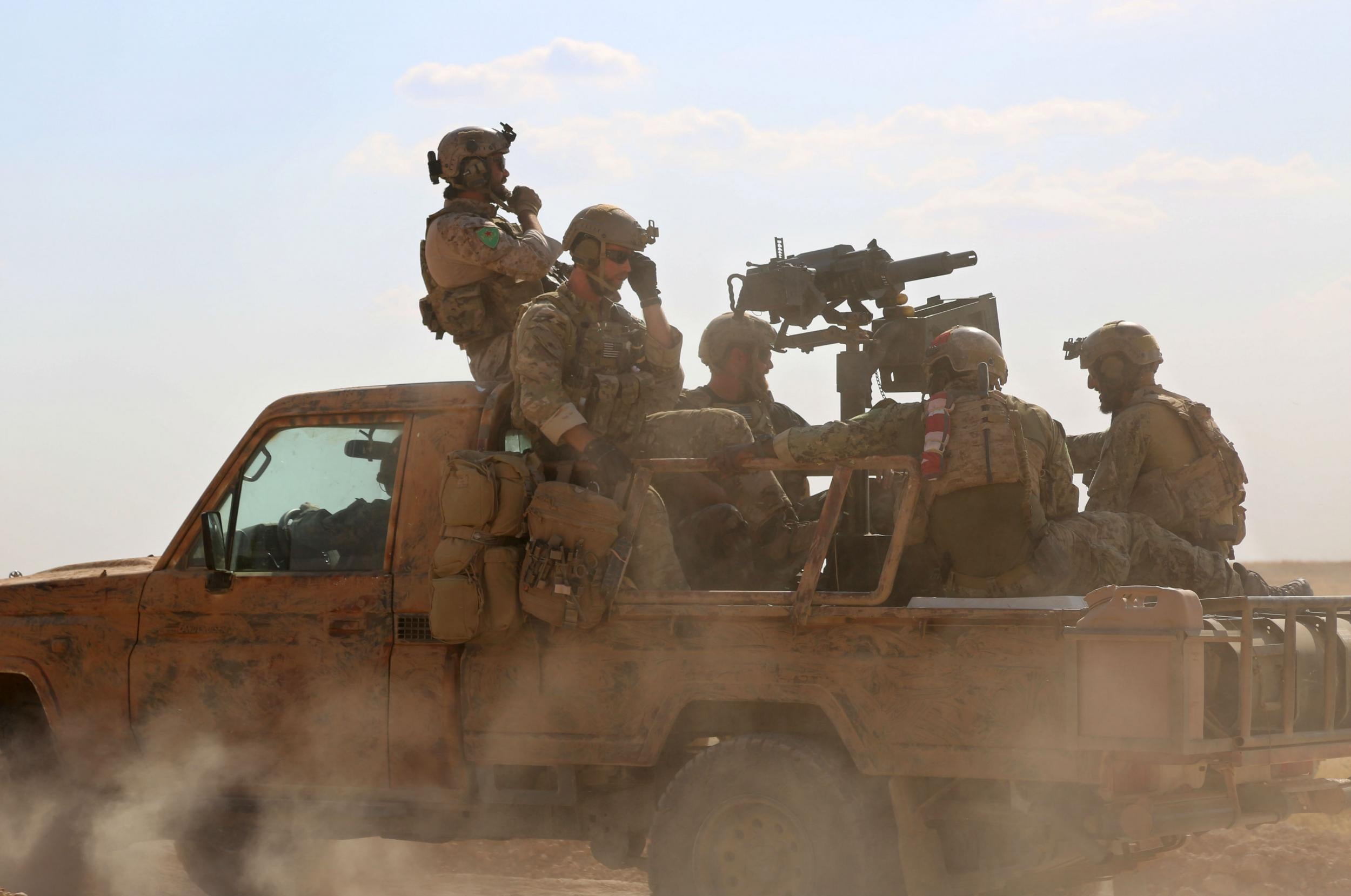US military commander warns Russia and Syria: 'We will defend ourselves'
The warning came days after Syrian troops attacked an area where US special forces have been operating

Your support helps us to tell the story
From reproductive rights to climate change to Big Tech, The Independent is on the ground when the story is developing. Whether it's investigating the financials of Elon Musk's pro-Trump PAC or producing our latest documentary, 'The A Word', which shines a light on the American women fighting for reproductive rights, we know how important it is to parse out the facts from the messaging.
At such a critical moment in US history, we need reporters on the ground. Your donation allows us to keep sending journalists to speak to both sides of the story.
The Independent is trusted by Americans across the entire political spectrum. And unlike many other quality news outlets, we choose not to lock Americans out of our reporting and analysis with paywalls. We believe quality journalism should be available to everyone, paid for by those who can afford it.
Your support makes all the difference.A top US military commander has warned the forces of President Bashar al-Assad “we will defend ourselves” after Syrian planes and artillery launched operations in an area where American special forces are located.
The US dispatched a small number of special forces troops to northern Syria to assist Kurdish Pershmerga and support Syrian rebel groups seeking to overthrow Mr Assad. Yet last Thursday, two Syrian Su-24 ground-attack planes targeted an area close to where they are based.
The incident in the northern Syrian city of Hasakah, highlighted the complicated and perilous situation in Syria, where the US and Russia are on different sides of a civil war that has now raged for five years and killed or displaced millions of people. While in disagreement over Mr Assad, the two countries are seeking to cooperate in efforts to attack and destroy Isis bases in Syria.
Lieutenant General Stephen Townsend, who took control of US forces in Syria and Iraq last week, said he had voiced his concerns – passing a message to Syria through Russian intermediaries.
“We’ve informed the Russians where we’re at … [they] tell us they’ve informed the Syrians, and I’d just say that we will defend ourselves if we feel threatened,” Mr Townsend told CNN.
Mr Townsend is the first senior military commander to speak on the record about the US possibly challenging the Syrian Air Force in the wake of the incident just days ago.
Last week, Pentagon officials described the incident involving Syrian war planes as “unusual”. Several US troops had to be quickly moved, and US jet patrols over northern Syria have been increased as a result of what happened.
Mr Townsend said his main task was to keep up the pressure on Isis. He said he believed the US-led coalition could destroy the Islamist group “in this next year”. “That’s my goal. I am intent [on doing] that.”
“I want them dead or on the run in a hole somewhere in the desert, and significantly less of a threat,” he said.
Meanwhile, Isis is still planning global attacks, Mr Townsend said, adding that the group’s leader, Abu Bakr al Baghdadi, remained in charge and continued to issue orders that were communicated and followed.
The US has long believed senior leaders are in and around the city of Raqqa in Syria, the Isis-proclaimed capital of its caliphate. Mr Townsend said local Arab and Kurdish fighters, trained by the US, could start moving into areas outside Raqqa in coming weeks.
US, British, and French Special Operation troops have been advising local forces fighting in northern and eastern Syria since late last year. The US contingent is thought to number as many as 300.
Join our commenting forum
Join thought-provoking conversations, follow other Independent readers and see their replies
Comments